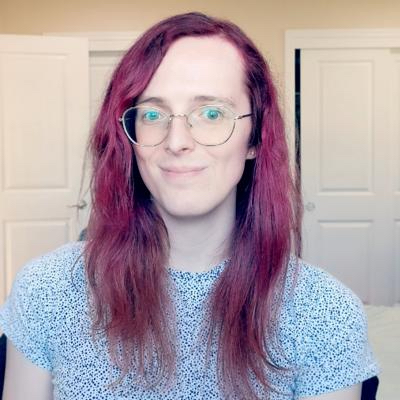See Quinn’s talk “The Tamagotchi in my Hands: Anarcho-transhumanist Biohacking” at 4pm on November 11, 2023.

Today’s world is one where all of our information is increasingly locked behind centralized services, and mined as training data for large machine learning models.
A better world is possible though, and we first glimpsed it in the mid 90s, with the release of an unassuming update to Microsoft Office that changed our conception of virtual assistants forever. His name is Clippy, and I have a copy of him loaded onto a computer chip embedded in my body.
Bio:
Quinn is an applied researcher at Fission, where she spends her time at the intersection of programming language theory and distributed systems, while thinking about new ways to build and compose systems together.
Her specialty lies in bridging the gap between the historical context software is embedded in, and the ways in which an ever-changing world recontextualizes that software in new ways.
Watch Quinn’s talk: “Postmodern Systems” – from Aaron Swartz Day 2002 on November 13, 2022: YouTube – Internet Archive
At the turn of the century, Gerald Sussman remarked that “computer science is in deep trouble. Structured design is a failure.”
Since then, our systems have only become more complex as we’ve struggled to cater to the needs of more types of people. Perhaps it’s time for us to take a page from Sussman’s book, and consider a post-structuralist interpretation of computer programs?
Doing so means reconceptualizing of software to eschew objective and totalizing experiences in favor of the intersubjective perspectives of our users: a goal that requires rethinking how we build interconnected software entirely.